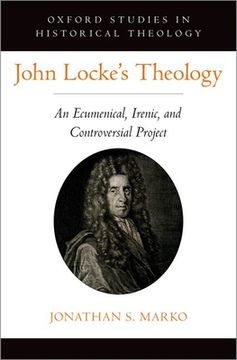Share
John Locke's Theology: An Ecumenical, Irenic, and Controversial Project
Jonathan S. Marko
(Author)
·
Oxford University Press, USA
· Hardcover
John Locke's Theology: An Ecumenical, Irenic, and Controversial Project - Marko, Jonathan S.
Choose the list to add your product or create one New List
✓ Product added successfully to the Wishlist.
Go to My Wishlists
Origin: U.S.A.
(Import costs included in the price)
It will be shipped from our warehouse between
Tuesday, August 13 and
Tuesday, August 20.
You will receive it anywhere in United Kingdom between 1 and 3 business days after shipment.
Synopsis "John Locke's Theology: An Ecumenical, Irenic, and Controversial Project"
In John Locke's Theology: An Ecumenical, Irenic, and Controversial Project, Jonathan S. Marko offers the closest work available to a theological system derived from the writings of John Locke. Marko argues that Locke's intent for The Reasonableness of Christianity, his most noted theological work, was to describe and defend his version of the fundamental doctrines of Christianity and not his personal theological views. Locke, Marko says, intended the work to be an ecumenical and irenic project during a controversial time in philosophy and theology. Locke described what qualifies someone as a Christian in simple and irenic terms, and argued for the necessity of Scripture and the reasonableness of God's means of conveying his authoritative messages. The Reasonableness of Christianity could be construed as personal, but mainly in the sense that it puts the burden of understanding Scripture and arriving at theological convictions on the autonomous individual, rejecting the notion that one should base one's doctrinal opinions on so-called authorities. His work was inadvertently controversial partly because then, like today, readers typically failed to make a distinction between Locke's personal and programmatic positions. Marko also points to places in Locke's corpus where he avoids advocating for a particular sectarian position in his treatment of theological doctrines. What is more, it shows why attempting to categorize Locke--a philosopher, theologian, and political scientist all at once--according to traditional Christian paradigms is a dangerous misstep and a difficult scholarly feat.

